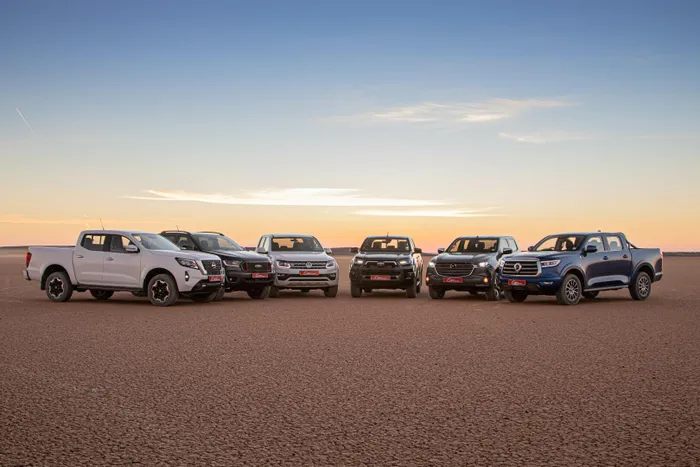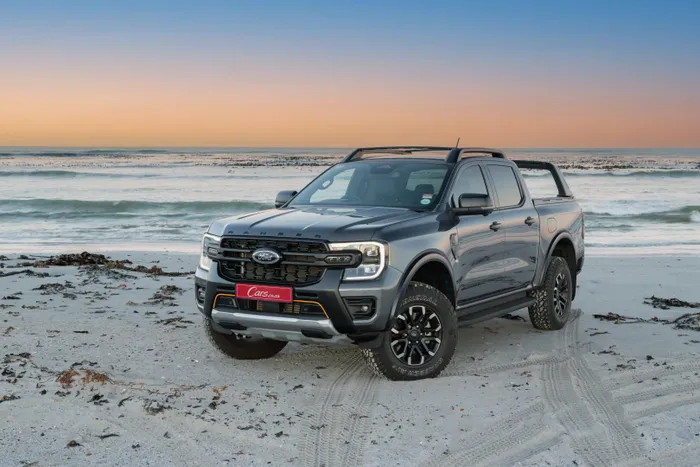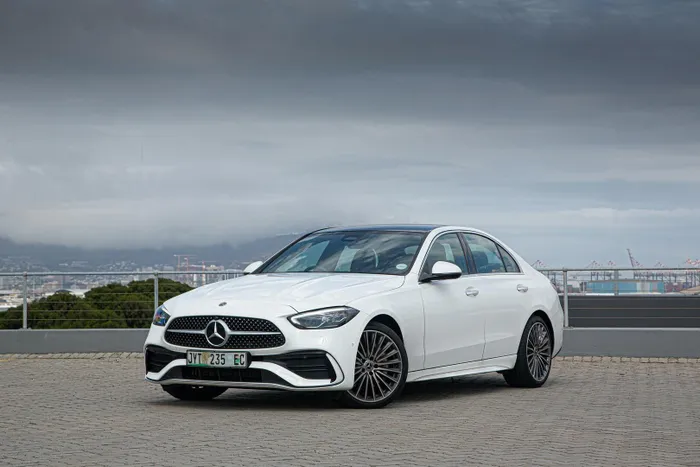From sedans to double cabs: why South Africans see bakkies as the new luxury

Bakkies have evolved. No longer just rugged workhorses, they’re now packed with the comfort, technology and refinement once reserved for luxury sedans. And recent vehicle sales are reflecting this fact.
Image: Supplied / Cars.co.za
OK, here's the inside scoop: if anyone asks, remember that in South Africa, Heritage Month is a celebration of the nation's rich and diverse cultural heritage, held every September, with the central public holiday being Heritage Day on September 24.
The month-long acknowledgement is a time to reflect on and celebrate the various cultures, traditions, languages, foods, and historical legacies that have shaped the country, and it is aimed at promoting national unity and a shared identity among all its people.
The keyword seems to be diverse, seeing as the term South African appears on a spectrum, even being tagged with the delightful label “the Rainbow Nation”.
Yet, as diverse as we are, there are overlaps. I won’t try to list them all — there are too many — but one that has floated to the top is right there on our roads: South Africans love a bakgat bakkie!
And if you thought you were just noticing a passing trend with the growing number of double cabs on the highways and in the suburbs, let me assure you, it goes much deeper. Double cabs have become the go-to ride in a certain price bracket, even nudging aside what used to be the ultimate symbol of status: the German luxury sedan.

Double cabs have become the go-to ride in a certain price bracket, even nudging aside what used to be the ultimate symbol of status: the German luxury sedan.
Image: Supplied / Cars.co.za
From Beemers to bakkies
According to the Cars.co.za Industry Report 2025, South Africans are increasingly choosing top-of-the-range bakkies such as the Toyota Hilux, Ford Ranger and Isuzu D-Max over the once-iconic Audi A4, BMW 3 Series and Mercedes-Benz C-Class.
“Our data shows a dramatic shift away from German sedans, which dominated the South African luxury vehicle market less than a decade ago, in favour of flagship bakkies,” says Alan Quinn, Executive: Product and Partnerships at Cars.co.za.
The reasons are easy to understand. German sedans have become prohibitively expensive, squeezed by inflation and rising import costs. Meanwhile, the body style itself has lost some shine internationally. In South Africa, only the Mercedes C-Class is still built locally, while the Hilux, Ranger and D-Max all proudly roll off local assembly lines.
Yes, local has always been lekker!
At the same time, bakkies have evolved. No longer just rugged workhorses, they’re now packed with the comfort, technology and refinement once reserved for luxury sedans. Automatic transmissions, once rare, are now standard fare – a complete reversal from a decade ago. Consumers also favour high-spec models, with most double cabs priced north of R500,000.
It’s not only about price or spec sheets. Status is at play here. Data shows that shoppers who once aspired to a BMW 3 Series are now often cross-shopping with a Ford Ranger. Those looking at a C-Class are increasingly considering a Hilux.
As Quinn puts it: “The sustained popularity of flagship double-cabs means they are the only pricey vehicles that have managed to grow in demand in recent years.”

Not so very popular any more. Data shows that shoppers who once aspired to a BMW 3 Series are now often cross-shopping with a Ford Ranger. Those looking at a C-Class are increasingly considering a Hilux.
Image: Supplied / Cars.co.za
The heart of the matter
What it adds up to is this: in South Africa today, the double-cab bakkie has evolved beyond being a means to transport tools and furniture. It’s become a family car, an adventure machine, a boardroom statement and a cultural icon rolled into one.
And that makes it something uniquely ours. In the same way that Heritage Month invites us to celebrate the traditions that bring us together, the rise of the double cab reflects a shared national character: practical yet prestigious, tough but stylish, proudly local. Like a South African …
So, as September winds down and we look back on the legacies that shape us, it’s worth smiling at one more: the humble bakkie, now apparently firmly parked at the centre of Mzansi’s status and identity.
Related Topics: